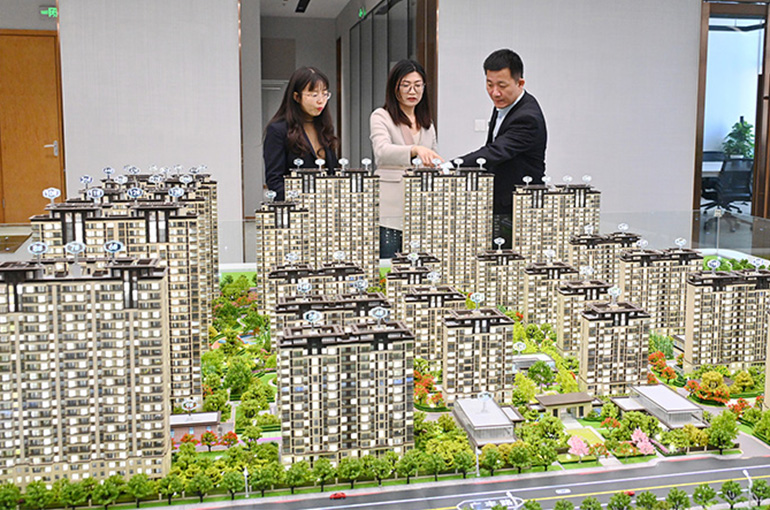 Market Sentiment Improves After Mortgage Rate Cuts But Long-Term Effect Remains Uncertain, Experts Say
Market Sentiment Improves After Mortgage Rate Cuts But Long-Term Effect Remains Uncertain, Experts Say(Yicai) Feb. 23 -- The property market sentiment has recovered to some extent after commercial banks lowered their mortgage interest rates, but it is yet to be seen whether these cuts can lead to a substantial rebound of the market in the long term, according to experts.
Online inquiries about residential properties on sale have recently increased, an insider at a well-known real estate developer told Yicai, adding that even though the number of people visiting the company’s sales offices has not changed much this week, a handful of people have booked appointments to check out apartments in the upcoming weekend.
On Feb. 20, the People’s Bank of China lowered the over five-year loan prime rate by a more-than-expected 25 basis points to 3.95 percent, down 35 bps from January last year.
Since then, commercial lenders in small, middle, and first-tier cities have lowered their mortgage interest rates. In Beijing, the Chinese city with the highest rates, the mortgage rate for first-time buyers was trimmed to 3.95, while that in Shanghai was lowered to 3.85 percent.
In some cities, the mortgage rate is as low as 3.45 percent now, said Yan Yuejing, research director at the Shanghai E-House Real Estate Research Institute.
Many people came to the bank to ask about the latest information about the mortgage interest rate reduction after the LPR cut, credit managers at various state-owned and joint stock banks told Yicai.
A person planning to buy an apartment told Yicai that he has been recently checking apartments partly because after the mortgage rate cut, he can save CNY52,100 (USD7,240) if he applies for a 30-year mortgage of CNY1 million (USD139,020).
But some market experts still prefer to remain cautious.
This latest mortgage rate cut has indeed brought more favorable conditions to residents who were already planning to buy a house, Ming Ming, chief economist at Citic Securities, told Yicai. But for people who would buy a home to improve their living conditions, the rate cut only has a limited impact because they also need to consider other factors, such as future long-term income expectations and property price trends, he noted.
The stimulus effect of the mortgage rate cut on the whole property market is expected to be relatively limited because it faces other major issues, such as low demand and weak expectations, Ming pointed out, adding that this move alone cannot significantly increase the demand.
Shanghai boasts a relatively favorable environment for a rebound in the real estate market, so the short-term expectation is positive, Xu Dafeng, associate professor at the business school of East China University of Political Science and Law, told Yicai. But the sluggish environment in neighboring provinces is expected to limit Shanghai’s property market rebound, casting doubts on the sustainability of the recovery, Xu added.
To boost residents’ confidence in the property market, it is necessary to drive the development of the economy and improve resident income expectations, a Shanghai-based real estate analyst at a large brokerage firm told Yicai. Moreover, policies should be implemented to ensure the timely delivery of properties sold before the completion of construction to further stabilize confidence.
Editors: Tang Shihua, Futura Costaglione